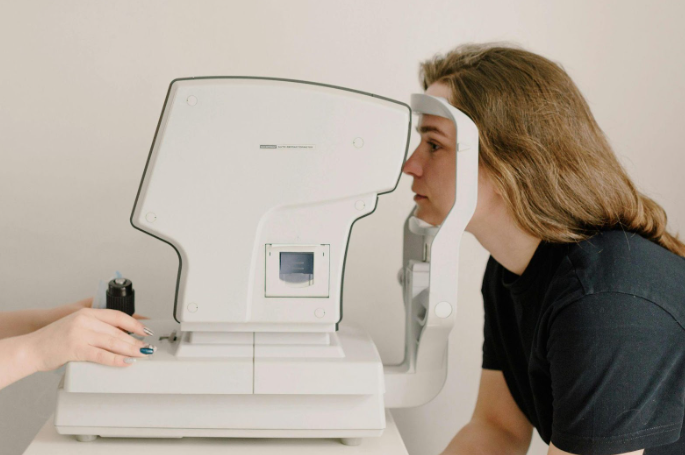Frequently Asked Questions for LASIK
Frequently Asked Questions for LASIK

Laser Assisted Stromal In-situ Keratomileusis, or LASIK, has become a popular solution for correcting vision problems such as nearsightedness, farsightedness, and astigmatism. Let’s answer some of the most common questions about LASIK, providing clear and concise information for those considering the procedure.
What Is LASIK?
LASIK is a surgical procedure that corrects refractive errors in the eye by reshaping the cornea, the transparent front part of the eye, to allow light to be properly focused onto the retina. The procedure is performed by an ophthalmologist using a specialized laser and can significantly reduce or even eliminate the need for glasses or contact lenses.
How Does LASIK Work?
LASIK begins with a small flap in the cornea’s surface being created. With the flap lifted, a laser can then be used to take away a precise amount of corneal tissue. By reshaping the cornea, the light entering the eye can be more accurately focused, which improves vision. Once the cornea is reshaped, the flap is repositioned, and the eye naturally begins to heal.
Who Is a Good Candidate for LASIK?
Not everyone is a suitable candidate for LASIK. Ideal candidates are typically over 18 years old, have had stable vision for at least a year, and have a refractive error that falls within the range that LASIK can correct. Individuals with certain eye conditions, such as severe dry eyes, thin corneas, or very high levels of myopia, may not be suitable for this treatment. A thorough evaluation by an eye care professional is necessary to determine eligibility.
What Are the Risks and Complications?
Like any surgical procedure, LASIK may have some side effects, such as dry eyes, glare, halos around lights, and fluctuating vision. These side effects typically go away on their own after a while. In rare cases, complications such as infection, scarring, or issues with the corneal flap can occur. It's important to discuss all potential risks with your surgeon before proceeding with the surgery.
What Is the Recovery Process Like?
Recovery from the procedure is relatively quick. Most patients experience improved vision within 24 hours, although it may take a few weeks for vision to stabilize completely. During the initial recovery period, it's normal to experience some discomfort, such as mild irritation or light sensitivity. Patients are usually advised to avoid strenuous activities, swimming, and rubbing their eyes during the healing process. Regular check-ups with your surgeon are necessary after the procedure to monitor your healing progress and discuss any potential complications or questions.
How Long Does LASIK Last?
The effects of LASIK are considered permanent, but the natural aging process of the eye can lead to changes in vision over time. For example, many individuals over 40 may develop presbyopia, a condition that affects near vision. While the procedure can correct existing refractive errors, it does not prevent age-related vision changes. Some patients may require additional treatments or the use of reading glasses later in life.
Is LASIK Painful?
The LASIK procedure itself is not painful, as numbing drops are used to anesthetize the eyes. Patients may feel slight pressure during the surgery, but this is typically not uncomfortable. After the procedure, mild discomfort or irritation is common, but this usually subsides within a few hours. Over-the-counter pain relievers and prescribed eye drops are often recommended to manage any post-operative discomfort.
How Much Does LASIK Cost?
The cost of LASIK can vary depending on the surgeon, location, and the specific technology used. The average cost of LASIK surgery ranges from $2,000 to $3,000 per eye, often including pre-operative evaluations, the surgery itself, and post-operative care. Some insurance plans may cover part of the cost, but LASIK is generally considered an elective procedure and may not be fully covered.
What Should You Expect during the Consultation?
A consultation typically involves a comprehensive eye examination to assess your vision and medical history to determine if you're a good candidate for the procedure. During the consultation, your eye care professional will measure your corneal thickness, pupil size, and refractive error. They will then review your health records and medications. This information helps the surgeon decide if LASIK is the best option for you.
Are There Alternatives to LASIK?
While LASIK is a popular option, it's not the only one available for vision correction. Alternatives include photorefractive keratectomy (PRK), laser-assisted subepithelial keratectomy (LASEK), and implantable contact lenses. Each of these alternatives has its own set of advantages and may be more suitable for individuals with certain eye conditions or preferences. Discussing these options with your eye care professional can help you make an informed decision.
What Are the Long-Term Results of LASIK?
The long-term results of the procedure are generally positive, with the majority of patients achieving 20/20 vision or better. However, it's important to have realistic expectations. While LASIK can greatly reduce dependence on glasses or contact lenses, it may not eliminate the need for them entirely, especially for activities like night driving or reading small print. Regular eye exams remain important to monitor eye health and vision changes over time.
Schedule your consultation with our team at
Baptist Eye Surgeons today and take the first step toward clearer vision. We are dedicated to providing personalized care and advanced LASIK solutions tailored to your needs. Don't let vision problems hold you back—discover how LASIK can transform your life.
Schedule your comprehensive eye exam now and see the difference we can make.





